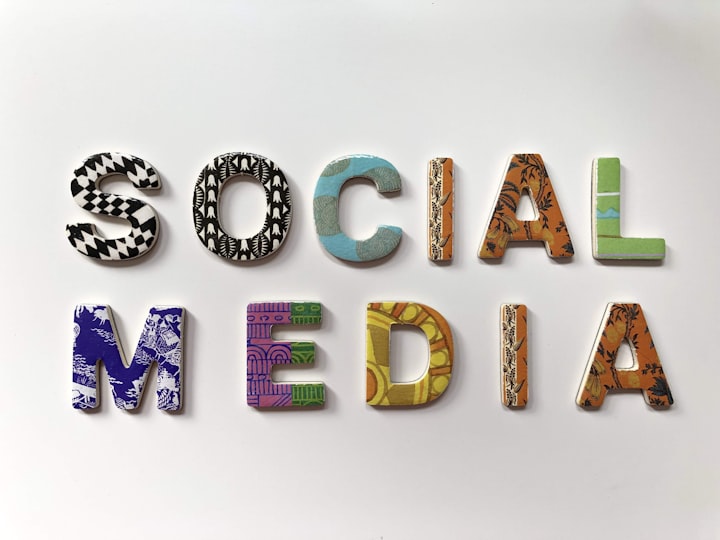Confidence and Anxiety are Polar Opposites, and Why It’s Important to Balance the Two
Night and day, good and evil, confidence and anxiety!

Quick Fact
-Just like light and day, confidence and anxiety are total opposites on the emotional scale!
Intro
I’m making a bold claim by saying that confidence and anxiety are polar opposites, just like black and white, masculine and feminine, light and dark. However, we'll look at the definition of these two words and we’ll see what I mean!
The Definitions
Confidence is described as, “a feeling or consciousness of one’s powers or of reliance on one’s circumstances,” or as “faith or belief that one will act in a right, proper, or effective way.”
Already we can see an upside and a downside to confidence. It’s important to be aware of the power and ability you actually possess since it helps give you a sense of self (aka ego), which is a very healthy feeling if it stays at this level.
The real trouble comes from taking the second definition too far; overestimating our own abilities or potential leads to too much ego, which is really where it gets its negative connotation from. If we have too much ungrounded faith or belief in ourselves, especially if we’re trying something new, or if we’re out of our element in any given situation, then we come off as brash, arrogant, egotistical, unapproachable… You know the type.
The definition of anxiety is “Apprehensive uneasiness or nervousness usually over an impending or anticipated ill,” or the medical definition, “an abnormal and overwhelming sense of apprehension and fear often marked by physical signs (such as tension, sweating, and increased pulse rate), by doubt concerning the reality and nature of the threat, and by self-doubt about one’s capacity to cope with it.”
In other words, there are situations involving certain things, thoughts, or people that we aren’t confident enough to move through; sometimes we don’t believe in our own abilities and that produces a feeling that we call ‘anxiety.’
‘Grounded’/’Ungrounded’ Anxiety and ‘Grounded’/ ‘Ungrounded’ Confidence
Sometimes, however, we feel anxious because we really don’t possess the knowledge, skillset, or capability to work through a situation properly. If someone decides to learn construction as a trade then they won’t feel so great if they switch their career and become a chef simply because they don’t possess the skillset to work in such an industry and make money. (He might have learned to cook beforehand of course but let’s say he didn’t for the sake of time.)
This kind of anxiety isn’t something that goes away from him just because he reads a blog article; it slowly transforms into confidence as he learns the skillsets needed to be able to work and thrive in a kitchen.
It’s important to know whether your confidence and anxiety are grounded in reality or not. If you’re like me and you feel a pang of anxiety because you’re about to go to work, then the anxiety isn’t very grounded in reality because I’ve been doing the same kind of work for a year and a half now, and I’ve been through enough to know I’ll make it through the day. If, though, I’m hanging off the edge of a cliff about to die and an avalanche starts to shoot down towards my face… Well, that’s a shot of adrenaline I’ll actually need to find a hidey-hole somewhere!
I mention this because I see a lot of people (especially young men) who are very, very anxious for no apparent reason whatsoever. Sure, most of the time I don’t know anything about their personal life, but what I do know is that they’re in a safe place at that moment with thoughts and/or feelings bothering them about either past or foreseen future situations. I call that ‘ungrounded anxiety’ simply because they aren’t confident in their actual capabilities to make the situation happen as they want it to.
If you are capable of doing something and/or making it turn out the way you want (whatever “it” might be) then there’s no reason to feel anxious about that particular circumstance. If you’re feeling anxious about something and you really don’t have the skillset to overcome it then I call that “grounded anxiety.”
Instead of running away from it (by medicating yourself or otherwise), it’s best to find the skill set you need to build and build it up enough to take care of the situation properly. Slowly, over time, grounded anxiety turns into grounded confidence whether we’re conscious of it or not.
“Grounded confidence” is confidence based on actual ability. If someone is confident in their ability to build a house because they’ve been building houses for 40 years then they have grounded confidence when it comes to building houses.
“Ungrounded confidence” is when someone creates confidence with their mind, out of nowhere!
For example, if someone tells you they can build a house but don’t have any actual experience building a house then it’s very possible that they're operating from a place of ungrounded confidence. These kinds of people can seem egotistical, arrogant, etc, even though this isn’t a fundamentally unhealthy aspect of life - ungrounded confidence can be an amazing thing to manifest!
What About Medical Disorders?
If someone is diagnosed with something like GAD (General Anxiety Disorder) chances are it can be linked back to a traumatic event(s) that happened early on in that person’s life. I should mention I’m not a licensed professional and that if you feel anxious all of the time you should try more conventional methods of helping yourself (like seeing a therapist/psychiatrist) before reading the rest of this post.
If you have been medically diagnosed with any kind of anxiety then it’s important to know that you are the one who’s producing it. You may be thinking, “That’s not very fair, I was born with a chemical imbalance in my brain that has to be regulated with medication” or something along those lines, but you are the one who is keeping your reality the way it is, even if you’re using your subconscious mind to do it.
This kind of thinking might be confusing to most so I’ll explain further; I am merely pointing out that the part of you that circulates your blood, grows your bones, pumps your heart, and digests your food isn’t something that is beyond your control, it is exactly what you are doing at this moment!
This means that if you have a genuine medical disorder that cannot be transcended by introspective questioning and intuitive back-tracking, it is still a part of you and it is keeping the medical disorder the way it is. This means that it is your responsibility to help yourself in the best way that you can, although this is certainly easier said than done.
To end this relatively short post, I’ll say that grounded anxiety and grounded confidence are both healthy when experienced in their due amounts; we do enjoy learning new things and perspectives after all! However ungrounded anxiety should be identified as such and changed into its grounded version, or disidentified with and healed/changed into another feeling.
Why? Because if we find out where our ungrounded anxieties lie then we can realize that we don’t need to worry about them, which will provide more energy to build the skillsets to turn grounded anxiety into grounded or ungrounded confidence!
Also, if we are lacking in confidence we can produce it with our mind and have it that way!
Conclusion
Thank you for reading! I'm truly grateful for your presence, and I'll see you in the next article!
About the Creator
Gabriel Mohr
Hey everyone, my name's Gabriel! I love writing short stories, spreading conscious knowledge, and positivity! Author of 3 books :)
Check out my website! www.gabrielmohr.com
Enjoyed the story? Support the Creator.
Subscribe for free to receive all their stories in your feed. You could also pledge your support or give them a one-off tip, letting them know you appreciate their work.






Comments
There are no comments for this story
Be the first to respond and start the conversation.